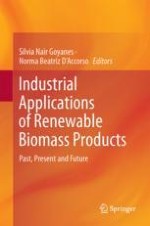2017 | OriginalPaper | Buchkapitel
Innovative Systems from Clickable Biopolymer-Based Hydrogels for Drug Delivery
verfasst von : C. García-Astrain, L. Martin, M. A. Corcuera, A. Eceiza, N. Gabilondo
Erschienen in: Industrial Applications of Renewable Biomass Products
Aktivieren Sie unsere intelligente Suche, um passende Fachinhalte oder Patente zu finden.
Wählen Sie Textabschnitte aus um mit Künstlicher Intelligenz passenden Patente zu finden. powered by
Markieren Sie Textabschnitte, um KI-gestützt weitere passende Inhalte zu finden. powered by
